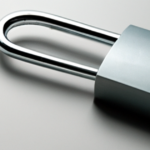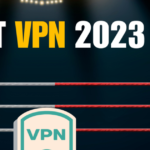Factors Affecting VPN Speed
Whenever I experience slowdowns with my VPN connection, I consider several crucial factors that might impact its performance. These factors range from the state of my personal internet connection to the specifics of the particular VPN server I’m using.
Role of Internet Connection
My VPN speed is highly dependent on the quality of my internet connection. If the internet speed is slow to begin with, the VPN is not going to be fast. Issues with the local ISP or a suboptimal Wi-Fi connection can severely affect the VPN’s performance.
Encryption Overhead
Encryption ensures my data is secure, but it also adds overhead that can slow down the connection. The stronger the encryption, the more processing power is required, which can lead to reduced VPN speed.
VPN Server Distance
The physical distance between me and the VPN server can significantly affect speed. Generally, the farther away the VPN server is from my location, the slower the connection, due to increased travel time for data packets.
Server Load and Bandwidth
VPNs have limits on server load and bandwidth. If I’m connecting to an overcrowded server, I may experience slower speeds. Moreover, limited bandwidth provided by the VPN service can cap the speed regardless of other factors.
Network and Connection Types

In exploring the reasons behind a slow VPN, it’s essential to understand the various network and connection types and their respective influence on VPN performance.
Wi-Fi vs. Ethernet Connections
I find that choosing between a Wi-Fi or an Ethernet connection can have a significant impact on VPN speed. A wired connection with an Ethernet cable is generally more stable and faster than a Wi-Fi network. This is because Wi-Fi connections can suffer from interference and signal degradation, especially if I’m far from the router or if there are many devices connected.
ISP Throttling and VPN Use
Sometimes, when I notice a slowdown, it may not be my VPN’s fault. Instead, it could be due to ISP throttling, where my internet service provider deliberately slows down my internet speed. Using a VPN can sometimes circumvent throttling, especially since ISPs can’t as easily track what kind of data I’m sending and receiving.
The Impact of Routers on Speed
The quality and specifications of routers also play a critical role in VPN speeds. Here’s a simple breakdown:
- Older routers may lack the processing power needed for fast VPN connections.
- Router location within my home can affect signal strength to my devices.
- I make sure to regularly update firmware or consider an upgrade if my router is dated to avoid unnecessary speed bottlenecks.
By considering these factors related to my home network and connection choices, I can take steps to boost my VPN’s performance.
Optimizing VPN Performance

When my VPN speed doesn’t meet my expectations, I know it’s time to optimize. Ensuring peak performance involves choosing the right provider, picking the best server location, and adjusting the protocol settings.
Choosing the Right VPN Provider
The selection of a VPN provider is critical to achieving optimal VPN speed. I always start by comparing top services, such as ExpressVPN, NordVPN, Surfshark, and Private Internet Access. It’s important to consider their server infrastructure, as a provider with a vast number of high-quality servers can offer better speeds and reliability. Providers that invest in their network usually provide the most consistent experiences.
Selecting the Optimal Server Location
Next, I focus on server location. Choosing a server close to my physical location typically results in faster speeds, as data doesn’t have to travel as far. If I’m looking to access geo-specific content, I select a server in the country where the content is available, but still as close to me as possible to maintain performance.
Tweaking Protocol Settings
Finally, adjusting protocol settings is a crucial step. Different protocols can dramatically impact VPN performance. While OpenVPN is widely regarded for its balance of speed and security, sometimes switching to protocols like IKEv2/IPSec or WireGuard can increase my speed, especially on mobile devices. It’s usually just a matter of a few clicks within the VPN client to test different protocols and find the one that works best for my connection.
Advanced VPN Features

When discussing the sophistication of VPN technology, I find it essential to examine particular features such as split tunneling and WireGuard protocol, both of which have significant impacts on the functionality and performance of VPN services.
Understanding Split Tunneling
Split tunneling is a critical feature I use when I want to direct some of my internet traffic through the VPN while allowing the rest to access the internet directly, without encryption. This can help improve connection speeds for certain tasks and reduce bandwidth on the VPN server. For example, I might choose to have only my banking application traffic go through the encrypted tunnel while streaming video content outside the VPN. This selective routing enables me to make the most out of my VPN connection without slowing down all my internet activity.
The Significance of WireGuard Protocol
The WireGuard protocol has caught my attention recently due to its promises of increased speed and security. It’s a newer, lightweight VPN protocol that aims to outperform the established OpenVPN and IPSec protocols. The reasons why I stand by WireGuard include:
- Faster speed: WireGuard is designed to provide a faster connection compared to traditional protocols.
- Modern cryptography: It utilizes state-of-the-art cryptographic techniques, which I appreciate for their robust security.
- Simpler codebase: With fewer lines of code, WireGuard is easier to audit, reducing the risk of security vulnerabilities.
Using WireGuard, I notice that my VPN service is generally more efficient and provides a consistent connection, which is crucial when I’m dealing with sensitive information that needs to be protected without compromising on speed.
Troubleshooting Slow VPN Connections

When my VPN is slow, it usually means something is affecting my internet access or connection speed. Figuring out the problem is the first step to a solution.
Identifying Connection Issues
First, I check if the slow internet connection is specific to the VPN or my overall internet service. Is my VPN slow due to server location, or is it a broader issue with my network? I often start by connecting to the internet without the VPN to see if there’s a notable difference in speed.
Assessing VPN and Internet Speed Tests
Next, I run an internet speed test with the VPN active and another with the VPN disconnected. If my VPN connection is significantly slower, I then test different VPN servers, as this can dramatically affect connection speed. It’s essential to use reliable speed test tools to get accurate results.
- Connect without VPN and note speed
- Connect with VPN to various servers and compare speeds
- Repeat tests at different times of day to check for consistency
Security Concerns and Mitigations

When using a VPN, security is pivotal, but it can sometimes slow down the connection. I’ll discuss how encryption strength and the balance between speed and security matter.
The Role of Encryption in VPN Speed
Encryption is the process that secures data by converting it into a code to prevent unauthorized access. When I use a VPN, the data I send and receive is encrypted for security. But there’s a catch: stronger encryption can slow things down. For example, AES-256, an advanced encryption standard, provides robust security but may reduce speed more than simpler encryption methods.
Balancing Speed and Security
I know that a slower VPN can be frustrating, but it’s important to understand that slowing down isn’t always bad; sometimes, it’s necessary for security. I prefer a trustworthy VPN provider that offers a range of protocols, like L2TP/IPsec, which balances good security with better speed. Here’s what I consider to gauge the right balance:
- VPN Protocol: The way my VPN routes traffic can impact speed. Some protocols prioritize speed, while others, like L2TP/IPsec, offer a middle ground.
- Encryption Level: While I want strong security, sometimes, a slight drop in encryption strength can speed things up without compromising my privacy too much.
In my experience, finding this balance means I don’t have to sacrifice online safety for speed.
The Impact of External Factors
When exploring the reasons behind a slow VPN, it’s crucial to consider external elements that play a significant role in VPN performance. These factors can range from the physical location of servers to unwanted software interference.
Influence of Geo-Restrictions
When I connect to a VPN server, the physical distance to the server is a key factor in the speed of my connection. The farther away the VPN server is from my location, the higher the latency—which means a slower connection. This latency can be especially noticeable when accessing content that’s restricted to certain geographic locations; I’m compelled to connect to a specific country’s server, which may significantly affect my VPN speed.
Dealing with Malware and Interference
Malware can hinder my VPN’s performance by using up bandwidth or processing power, which can result in slower speeds. Ensuring my device is free of malware is a critical step in maintaining optimal VPN performance. Additionally, interference from other applications or network congestions can impact the efficacy of the VPN protocol I’m using, indirectly contributing to the speed issues I’m facing. Here’s what I keep an eye on to minimize these interferences:
- Check running applications: I make sure there are no intensive background processes that could affect my connection speed.
- Regular scans: Conducting regular antivirus checks helps keep my system clean and ensures malware doesn’t slow down my VPN.
- VPN protocol selection: Choosing the right VPN protocol can reduce latency and improve speed. Some protocols prioritize speed over security, and vice versa.
By understanding these external factors, I’m better equipped to optimize my VPN’s performance and ensure a smoother online experience.
Frequently Asked Questions
In this section, I’ve compiled answers to some common questions about VPN speeds that people often have. If you’re experiencing slow VPN performance, understanding these aspects can help you troubleshoot and enhance your connection.
How can I improve the speed of my VPN connection?
Improving my VPN speed can involve multiple steps. I start by checking my network speed without the VPN to get a baseline. Then, I look to connect to a server that is closer to my geographic location. Sometimes, switching VPN protocols or using a wired connection instead of Wi-Fi makes a significant difference.
What factors may be causing my VPN to reduce internet speed?
Several factors can contribute to a slowdown. My VPN might be using servers that are far away, leading to increased latency. High traffic on the VPN server, or limitations on my own network, such as throttling by my ISP, could also be culprits.
Are there any VPNs known to enhance internet speed?
Actually, no VPN can increase my internet speed beyond what my ISP provides; however, some VPNs are known for their faster speeds. These VPNs usually have a large number of servers, optimized infrastructure, and technology to minimize speed loss.
What are common reasons for slow VPN downloads?
The common reasons for slow VPN downloads range from the encryption process, which takes up additional time and resources, to server load. If the VPN server is crowded, my downloads could be slowed down significantly.
At what speed should a VPN function optimally?
Ideally, a VPN should function at speeds that are about 80-90% of my non-VPN internet speeds. However, this can vary depending on the quality of the VPN service. Running a speed test can help me gauge the efficiency of my VPN.
How to resolve VPN issues that are affecting my iPhone’s performance?
To resolve VPN issues on my iPhone, I can try a few different tactics:
- Restart the VPN app.
- Make sure my iPhone’s software and the VPN app are up to date.
- Experiment with different servers and settings within the app.
- If problems persist, I might consider contacting the VPN provider’s support team for specific guidance tailored to their service.
- VPN by Google One: Secure Your Online Activity with Ease - February 27, 2026
- Can VPN be Hacked? Here’s What You Should Know - February 27, 2026
- What VPN Works with MLB TV: Ultimate Guide for Fans - February 27, 2026








